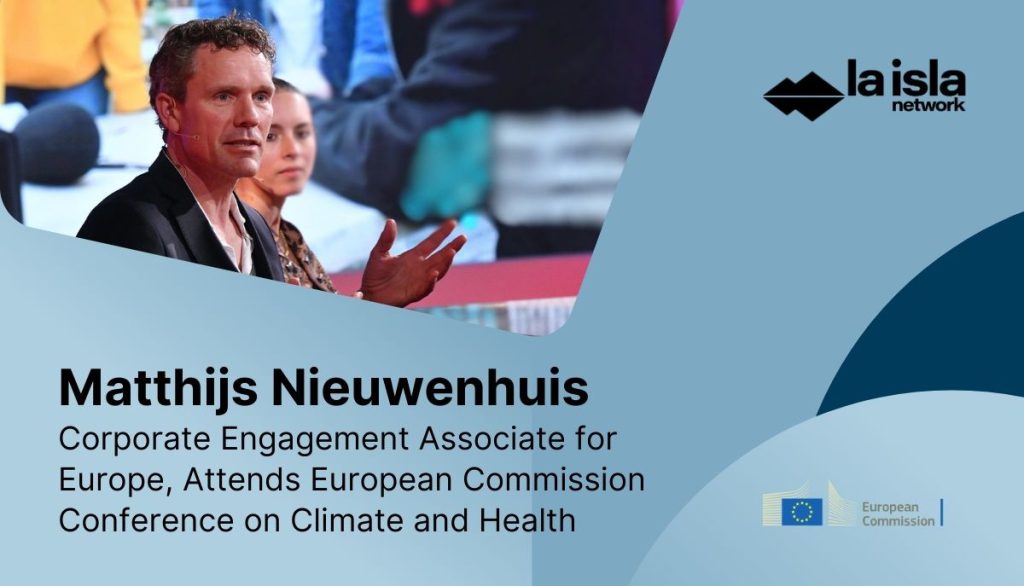“Heat is a silent killer.” The impact of climate change and rising temperatures is not solely a problem for the tropics. Over the past 30 years, Europe has experienced a temperature increase twice the global average. The European Commission held a high-level conference on climate and health in Brussels, focusing on “Research Perspectives on the Health Impacts of Climate Change.” MNCC founder Matthijs Nieuwenhuis attended the conference on behalf of our trusted client, La Isla Network, and reflects on the insights on climate and health gained from the event.

“Heat is a silent killer,” said Dr. Vladimir Kendrovski, Technical Officer on Climate Change for the WHO Regional Office for Europe at the conference. Climate change and health are unquestionably intertwined, with growing concerns about the health consequences of climate change. I participated in this European conference on behalf of La Isla Network to raise awareness about the risks of heat stress and be a part of the solution.
Heat is killing our workforce
The increase in frequency, duration, and intensity of heat events, like heat waves and extreme temperatures, are of particular concern as we grapple with the effects of climate change. This is not a problem for the tropics alone. Over the past 30 years Europe has experienced a temperature increase twice the global average.
Last summer’s record heat in Europe killed an estimated 61,600 people. Unfortunately, workers do not have the choice to avoid the outside environment if it becomes too hot.
To be sure, workers will suffer, and so will we. Heat stress among the European workforce will result in a reduction of working hours by roughly 2 percent, and its cost on the European economy is estimated at 830 billion euros annually.
Recognizing a growing concern, we are collaborating with the foremost European researchers — Andreas Flouris and the FAME Lab, for example — on heat stress and occupational health to tackle this emerging issue across various sectors in Europe.
Climate and health: Protect our workers if it is too hot to work
Safeguarding workers’ health in the face of climate change impacts is imperative. Often, it becomes too hot to work, and we must protect those who pick our grapes, build our houses, or cultivate the tomatoes we enjoy. Not one single worker should get sick from working for our personal and collective benefit.
Meanwhile, droughts and floods threaten food security, potentially resulting in a 37 percent loss of labor capacity worldwide, costing the European economy billions and billions. Tackling this issue is a humanitarian and economic no-brainer. Let’s do this.
Action is needed now
We must all collaborate to provide evidence-based policy recommendations to safeguard the workforce, assist industry leaders in adopting change, offer technical support to organizations addressing heat stress and other occupational illnesses and injuries. By doing so we can enhance productivity while preserving the health of our workforce, and thereby:
- Reduce harm and improve workforce health
- Increase productivity
- Achieve a positive return on investment
I am excited to see the growing attention to the safety and health of workers in light of climate change. Although a lot of work still needs to be done, progress is being made. A growing group of companies, institutions, and governments are taking action. I would love to see this group of frontrunners grow.
This blog was posted before at the LIN website: La Isla Network
